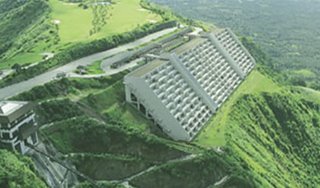Usually in a developing economy, where the fundamentals of production and consumption are in placed, the circulation of money should be continuous. Where the demand for production and consumption of goods and services are robust in a vibrant economy, the benefiting factor is the employment component.
Where there are employment opportunities for all possible types of labor and the consumption trend is steadily increasing, the disposable income derived from steady employment more than sustains the revolving wheels of economic prosperity.
Employment creates more products and services that are patronized and sustained by the consumerism population which derives their personal income from employment. As more jobs are created, more personal wealth can be accumulated. The availability of extra disposable income entails a serious responsibility for its earners. How does one keep their extra income to sustain the momentum of economic growth?
Extra disposable income as the term implies is actually excess income. It is income derived from one's occupation or exercise of a profession or business that is over and above one's monthly basic spending necessities. This is excess money or savings that can be parked in liquid assets such as short term monetary instruments such as time deposits, stock markets, bank or treasury certificates or company bonds that can easily be convertible to cash when the immediate need for it arises.
On the other hand, the same excess money can also be placed in long-term investments such as real estate investments. Both are good options to safe-keep one's excess income or savings; but the benefits to be derived from each option is highly dependent on the owner's short and long term financial goals. The investor should sit down and make a priority list of personal goals and objectives as they have a direct bearing on the financial aspect of one's future actions.
It is a definitely an excellent idea to keep a certain percent preferably 40% of one's excess income on risk free short-term instruments. These would provide an emergency fund buffer for unexpected events such as medical emergencies; sickness or birth in the family, or for sudden lose of employment.
The same readiness and easy availability of short-term instruments makes it readily dispensable and easy to be spent on impulse buying and indulgent shopping. So it is best that a limit or cap be set as to the amount that can be utilized unless of course it is really meant for dire emergencies.
On the other hand, excess savings that are parked in realty investments should be considered as long-term investments. Real estate properties, no matter the type are not readily convertible to cash in such short notice, unless one is willing to sell it at a loss or lower than the existing market value for which it is currently traded. It is therefore good assumption, to consider real estate investments as semi-permanent saving instruments; if the intention is to keep such property over a long period of time.
Real estate investments entail maintenance costs such as payment of monthly or annual maintenance/improvement assessments and realty property taxes which are adjusted upwards from time to time based on the assigned zonal locational value. So if these properties don't generate rental income for its owner, the cost to maintain such become a financial burden in the time that it is kept in its investment portfolio.
However, if the same realty property is an excellent source of rental income for its owner, the tremendous returns that benefits its owner can become a perpetual source of personal income for the duration of its lifetime of ownership. Depreciation is the biggest setback of property ownership as its net value decreases over its useful years and extensive maintenance requires additional assessments for its upkeep.
Whatever your choice of safe-keeping your excess income, the best person to decide on an excellent mix between short-term or long-term investments can only be you, and not the financial adviser. You alone are the best financial adviser for your economic state-of-affairs since the volatility of life and the fluidity of the times require one's readiness to adapt responsively to the situation-at-hand. Remember, you are the person responsible for earning, spending and keeping the wealth, you make!
Copyright Material
2011 All Rights Reserved
The content and photos contained herein on this site is the exclusive intellectual property of the site administrator and may not be copied, reproduced or rewritten in any other form without expressed authorization from the author. Unauthorized copying of other people's intellectual property constitutes theft and plagiarization and is punishable under the intellectual property law.
If you enjoyed this post, as well as the others, kindly consider donating any amount you wish by clicking on the donate button to the right to encourage the posting of more informative posts on a regular basis. Thank you very much for your donation.
